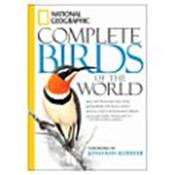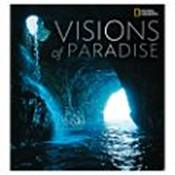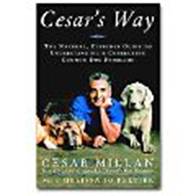题目内容
.His life was devoted to _____the poor out.
A. helping B. help C. being helped D. having helped
A

As a teenager in 1972, Bill Gates boasted that he would be a millionaire by the time he was 20. While he did not quite achieve that goal, only 15 years later, he was a millionaire. And by 1992, as head of the Microsoft company, he became the richest man in America with assets(资产)of nearly US $ 6.3 billion.
Born in Seattle, Washington on 28, October, 1956, Gates was named William Henry after his father and grandfather. From the beginning, he was an extremely energetic and intelligent child. He had read the entire world book encyclopedia(百科全书)by the age of nine. His favorite subjects at school were science and math and his favorite pastime was "thinking".
Gates first started to play with computers at the age of 13. Before long he became an expert at working the school's computer. After his graduation from secondary school, Gates was accepted by the three top universities in the USA-Princeton, Harvard and Yale. He chose Harvard and began classes there the next autunm, majoring maths. But he was still obsessed(占据心里)with computers and spent as much time in the computer laboratories as he did in the lecture halls.
By 1975, Gates and a partner, Paul Allen, had developed a software program called BASIC. This was not the first program ever created, but its inventors were the first to decide that people who wanted to use it should pay for it.
BASIC was a success because until it came along, there had been no efficient way of getting computers to carry out instructions. Although he had not completed his degree, Gates left university and went to work full time for the new company he had formed called Microsoft.
His next project was the software program that made him famous and very rich. It was called DOS, short for Disk Operating System, and it was purchased by IBM in 1980. Today it is the operating system used in more than 14 million personal computers around the world.
As chief executive officer(首席行政长官)of Microsoft, Gates is known as a bright man, but one who is not easily satisfied. He is quick to criticize his staff and hates to be questioned about decisions he has made. He was regarded as a loner and unfashionable boring computer nut until his marriage to Microsoft manager Melinda French on New Year's Day 1994. Yet to many people now, Gates, is a person who is, in spite of his great wealth, humble(谦恭)and ordinary. He spends his money carefully. He eats in fast food restaurants and flies economy class. And when praised for Microsoft's great success, he has been heard to say, "All we do is put software in a box and if people see it in the stores and like it, they buy it."
【小题1】When he was a teenager, Bill Gates wanted to be a ______.
| A.teacher | B.doctor | C.businessman | D.professor |
| A.was only interested in maths |
| B.spent most of his time in computer laboratories |
| C.developed the first computer software program |
| D.divided his time between his maths studies and the computer laboratories |
| A.no one was interested in computer software |
| B.software programs were not considered commercial projects |
| C.software programs were very expensive |
| D.no one wanted to pay for computer software |
| A.Bill was so strong-minded that no one could change his mind |
| B.The only thing that could interest Bill in his life was computer |
| C.Bill was such a boring young man that nobody would like to talk to him |
| D.Bill couldn't work out the boring computer programs |
| A.a crazy person | B.a person obsessed with making money |
| C.someone who spends money freely | D.a quite common, normal person |
Play is the basic business of childhood, and in recent years more and more research has shown the great importance of play in the development of a human being. From earliest infancy (婴儿), every child needs opportunity and the right material for play, and the main tools of play are toys. The main function of toys is to suggest, encourage and assist play. To succeed in this, they must be good toys, which children will play with often and will come back to again and again. Therefore, it is important to choose suitable toys for different stages of a child’s development.
In recent years research on infant development has shown that the standard a child is likely to reach, within the range of his inherited(遗传的) abilities, is largely determined in the first three years of his life. So a baby's ability to benefit from the right play materials should not be underestimated. A baby who is encouraged, talked to and shown things and played with, has the best chance of growing up successfully.
The next stage, from three to five years old, curiosity knows no bounds. Every type of suitable toy should be made available to the child, for trying out, experimenting and learning, for discovering his own particular ability. Bricks and jigsaws and construction toys; painting, scribbling(乱涂) and making things; sand and water play; toys for imaginative and pretending play; the first social games for learning to play and get on with others.
By the third stage of play development—from five to seven or eight years old— the child is at school. But for a few more years play is still the best way of learning, at home or at school. It is easier to see which type of toys the child most enjoys.
Until the age of seven or eight, play and work mean much the same to a child. But once reading has been mastered, then books and school become the main source of learning. Toys are still interesting and valuable, which lead up to new hobbies, but their significance has changed —to a child of nine or ten years old, toys and games mean, as to adults, relaxation and fun.
【小题1】The writer wants us to understand that a child_______.
| A.cannot grow up without toys | B.matures(使成熟) through play |
| C.uses toys as friends | D.has to be taught how to play |
| A.determine his character |
| B.will not change after the age of three |
| C.partly determine the standard he is likely to reach |
| D.to a large extent determine the choice of toys |
| A.two years old | B.one year old | C.six years old | D.four years old |
| A.the importance of play |
| B.the importance of books |
| C.the relationship between play and work |
| D.children’s speech development |
I grew up in a house where the TV was seldom turned on and with one wall in my bedroom entirely lined with bookshelves, most of my childhood was spent on books I could get hold of. In fact, I grew up thinking of reading as natural as breathing and books unbelievably powerful in shaping perspectives (观点) by creating worlds we could step into, take part in, and live in.
With this unshakable belief, I, at fourteen, decided to become a writer. Here too, reading became useful. Every writer starts off knowing that he has something to say, but being unable to find the right ways to say it. He has to find his own voice by reading widely and discovering which parts of the writers he agrees or disagrees with, or agrees with so strongly that it reshapes his own world. He cannot write without loving to read, because only through reading other people’s writing can one discover what works, what doesn’t and, in the end, together with lots of practice, what voice he has.
Now I am in college, and have come to realize how important it is to read fiction (文学作品).As a law student, my reading is in fact limited to subject matter—the volume (量) of what I have to read for classes every week means there is little time to read anything else. Such reading made it all the clearer to me that I live in a very small part in this great place called life. Reading fiction(小说) reminds me that there is life beyond my own. It allows me to travel across the high seas and along the Silk Road, all from the comfort of my own armchair, to experience, though secondhand, exciting experiences that I wouldn't necessarily be able to have in my lifetime.【小题1】What does the underlined word in paragraph 1 mostly probably mean?
| A. even | B.almost | C.tiredly | D.gradually |
【小题2】What can be inferred about the author as a child? | A. He never watched TV. |
| B. He read what he had to. |
| C. He found reading unbelievable. |
| D. He considered reading part of his life. |
【小题3】The underlined word "voice" in the second paragraph most probably means “________________ ”.| A.an idea |
| B.a sound quality |
| C.a way of writing |
| D.a world to write about |
【小题4】What effect does reading have on the author?| A. It helps him to realize his dream. |
| B. It opens up a wider world for him. |
| C. It makes his college life more interesting. |
| D. It increases his interest in worldwide travel. |
【小题5】Which of the following can be the best title of this text?| A. Why do I read? |
| B. How do I read? |
| C. What do I read? |
| D. When do I read? |





